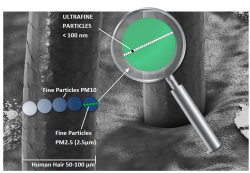Uniresearch Role
Uniresearch was hired by the coordinator AVL to write and compile the grant application. After approval of the project, Uniresearch has become responsible for the project coordination and the dissemination activities.
DIEPER
The DiePeR consortium develops the knowhow and technical capabilities to adequately and cost-effectively produce cleaner, highly efficient diesel powertrains and aftertreatment technologies for future class D and E passenger cars and light commercial vehicles (up to 3,500 kg) that go beyond Euro 6 limits under Real Driving conditions (EU6 RDE). The consortium comprises key players in the light duty powertrain and vehicle manufacturing sectors (among which 2 OEMs, a major engine manufacturer, five major high end large component and engineering services suppliers and knowledge centres).
Facts & Figures
- Acronym: DiePeR
- Full name: Diesel engines diesel efficiency improvement with Particulates and emission Reduction
- Start date: 1 October 2016
- Duration: 42 months
- Total budget: 8.6M€
- EC funding: 7.21M€
- EC contract number: 723976
The project consortium consists of 16 partners from eight (8) EU countries.
